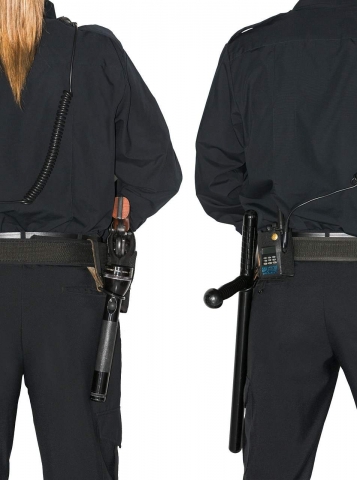Good Cop Bad Cop: Zugdidi Incident Prompts Expats to Reveal Police Concerns
Last week Georgia Today published the troubling story of an attack in June by an unknown number of Zugdidians on a Spanish couple as they were camping for the night before heading up to Mestia. The result left not only fractured limbs and sutured head wounds (and a sense of suspicion and disappointment towards police officers and doctors involved), but sent out a shockwave that resounded through the ex-pat community.
The Ministry of Internal Affairs (MIA), on seeing the story in Georgia Today, announced that an investigation was underway (although it is still unclear whether that started before or after the story was made public) and the Georgian Tourism Administration asked to contact the Spanish couple directly. Hardly surprising that they would want quick closure with the European Youth Olympic Festival and the UEFA Super Cup on the near horizon.
The question still remains as to whether or not the Zugdidi police who interviewed the victims reported the incident to the MIA. Were they [the local police] trying to protect relatives or friends who they knew to have been involved? Or did they see it as an insignificant issue, a blip on the radar of the otherwise warm image of Georgian hospitality?
Following on from the Zugdidi attack exposed last week, Georgia Today heard from other foreigners who came forward with their own tales of negligent or even aggressive treatment from police in Georgia.
“I was treated worse than my (Georgian, with no relatives in the police as far as I know) attacker.”
A native English speaking gentleman said: “I got beaten up and forcibly evicted by my [drunk] landlord two years ago - he struck me over the head with a panduri (a Georgian folk guitar), missing my eye (and possibly my brain) by mere centimeters, gave a few swings with a saw for good measure, smashed my cellphone so I couldn’t call for help, and there were traces of my blood all over the floor (though the police didn’t take any samples and never asked me to give any)… I still had a week left on my rent but it was an oral contract, and the receipt showing I’d transferred money to him, along with most of the other evidence (including said panduri and other destroyed property - without which there wasn’t much basis even for a civil case) ended up in the trash. The police, who gave the guy plenty of time to clean up the evidence, were no help at all, neither were the neighbors (one of whom responded to my cries of help by complaining about the noise), nor the embassy (who gave me the address of a cheap hostel ) or “honorary consulate” (who didn’t even bother responding) of the countries I’m a citizen of. Needless to say there was not a whimper from the media or anybody else. These [Spanish] guys are lucky they at least got their story aired.”
) or “honorary consulate” (who didn’t even bother responding) of the countries I’m a citizen of. Needless to say there was not a whimper from the media or anybody else. These [Spanish] guys are lucky they at least got their story aired.”
Another ex-pat, who asked to remain anonymous, told Georgia Today how she and her spouse have had people throw stones at them as they walk their dog. When asked if they had ever reported the abuse, she replied: “Why? The police wouldn’t bother because we’re foreign.”
“Isn’t giving a false statement perjury? Yet the police were encouraging me to do just this.”
The language barrier seems one of the most problematic issues for foreigners here wishing to take up an issue involving police. In most cases the police will arrange for a translator, although even this does not necessarily guarantee the correct detailing of a statement. This was seen in the case of the Spaniards last month: “The translator, “whose command of English was questionable”, altered numerous facts about the attack and later stated that these were unimportant.” Other foreigners have said that they have been ‘bullied’ by police into withdrawing a complaint (in one young man’s case by threatening him with deportation) and in another by a tiring repetition and twisting of facts until the complainant feels too numbed to pursue the issue, signing the incident off as “no problem.”
“Yes, Westerners will often get the red-carpet treatment but not everyone, and nowadays even that is far from a sure thing.”
That said, one ex-pat lady has had quite the opposite experience and claims she feels safe and lucky: “In the small town of 13,000 in which I live, when police see us, they always ask if we’re ok and make sure that none of the local drunkards are disturbing us.” Another gentleman spoke of nostalgia for the Saakashvili regime of order and discipline but said of today’s police that they seem to “go the extra mile for foreigners here, although unfortunately it can sometimes depend on a person’s skin color.”
All in all, foreigners can rest assured that Georgia is a safer place to live than many western countries, but there is no question that the police do need stricter regulation… and a few English classes.
Katie Ruth Davies












